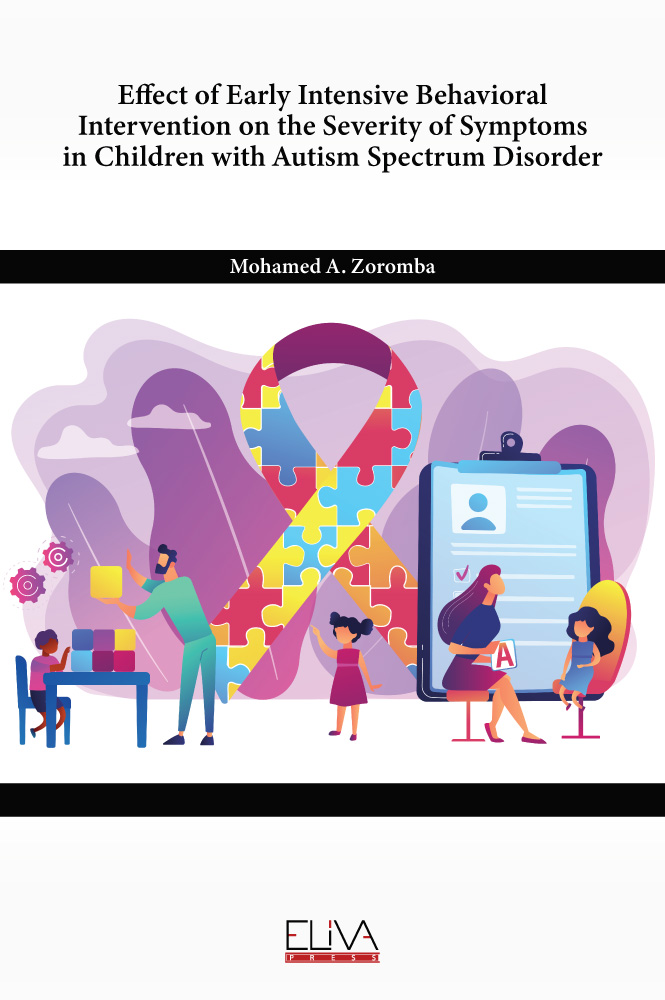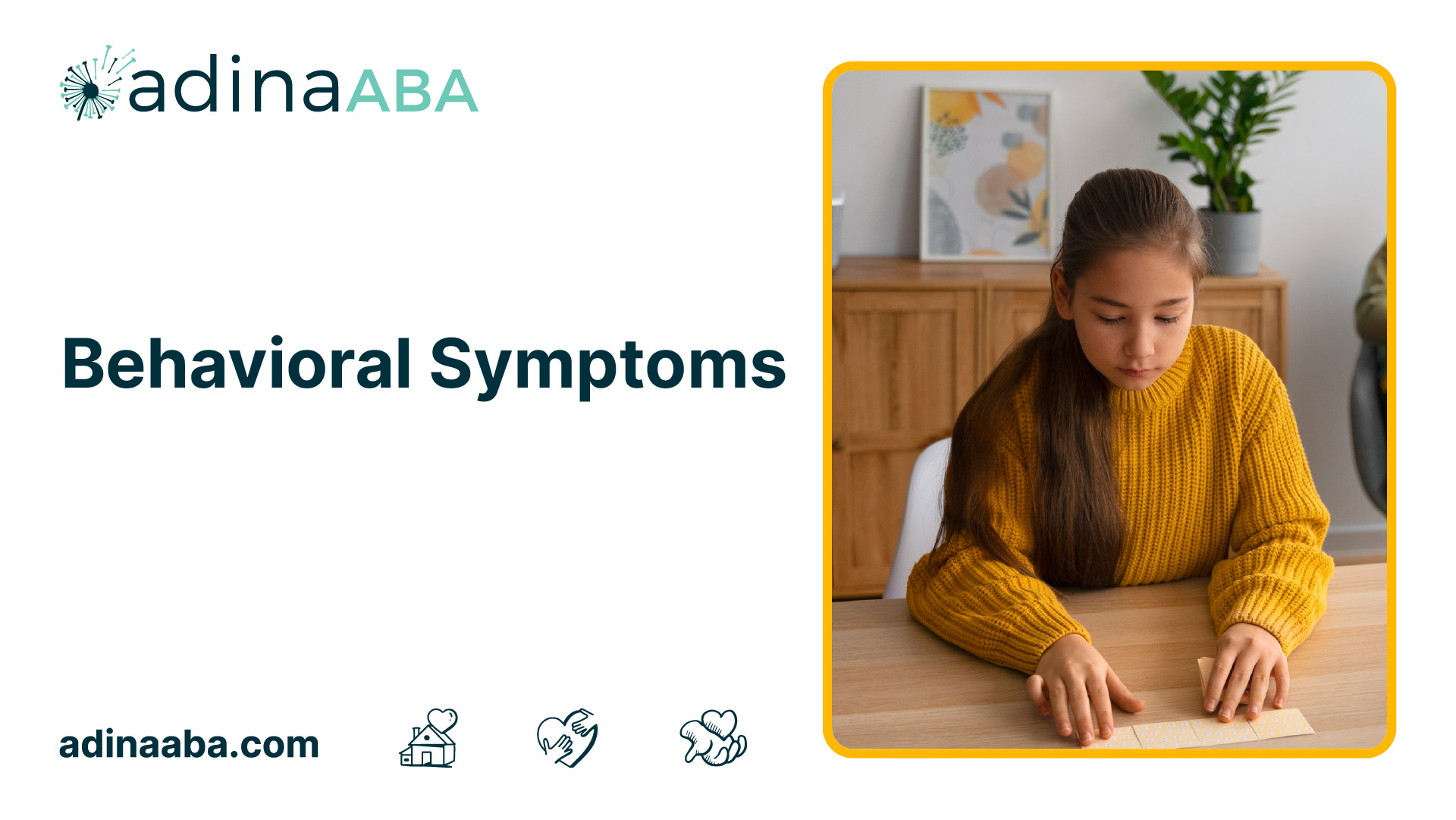Signs it’s time your family needs Autism Behavioral Therapy intervention
Signs it’s time your family needs Autism Behavioral Therapy intervention
Blog Article
Key Indications and Signs And Symptoms to Recognize in Individuals With Behavioral Autism
When you encounter someone with behavior autism, acknowledging vital symptoms and signs is vital. You could see obstacles in social communications and communication, along with a solid need for routines. Furthermore, sensory level of sensitivities can cause overwhelming experiences. Comprehending these traits can enhance your assistance and treatments, however there's more to discover concerning just how these behaviors materialize in everyday situations. Let's explore what these signs truly resemble.
Difficulties in Social Communications
When you connect with someone on the autism spectrum, you could discover they struggle with social cues and communication. These obstacles can make social interactions feel frustrating for them.
When they do engage, they may speak about their passions in terrific detail without discovering if you're interested. Understanding these difficulties can aid you approach interactions with empathy and perseverance, fostering an extra comfortable environment for both of you.
Trouble With Verbal and Non-Verbal Interaction

Non-verbal communication can be also extra challenging. You might see an absence of eye get in touch with or minimal use gestures, which can make interactions feel awkward. Facial expressions may not always line up with the discussion, leading to confusion about their feelings. Acknowledging these indicators is vital, as it assists you far better assistance and involve with people on the autism range. By comprehending their interaction difficulties, you can foster a lot more purposeful connections and offer an extra supportive atmosphere.
Recurring Habits and Routines
Interaction obstacles frequently accompany various other indications of autism, such as recurring behaviors and a strong preference for regimens. You might discover that individuals with autism frequently take part in certain, repetitive actions, like hand-flapping, rocking, or repeating expressions. These actions can provide comfort and a feeling of control in a frequently frustrating world.
Routines are just as essential; several individuals thrive when they comply with a structured timetable. You might locate that changes to these regimens can cause considerable distress. As an example, if they have an everyday routine of eating morning meal at a certain time or following a specific route to institution, any type of disturbance can trigger stress and anxiety.
Acknowledging these patterns assists you comprehend their habits and supply assistance. By suiting their demand for routine and permitting repeated activities, you can produce a much more comfortable atmosphere that reduces their challenges.
Sensory Sensitivities

Usual Sensory Triggers
Sensory sensitivities can significantly impact life for individuals with autism, as certain stimuli commonly set off frustrating responses. Usual sensory triggers include loud noises, intense lights, and strong smells. You could see that sudden audios, like alarms or alarm systems, trigger stress and anxiety or distress. Fluorescent lights in shops can really feel harsh and uneasy. Textures can also play a significant function; rough materials or specific food structures might be unbearable for you. Furthermore, crowded locations can overwhelm your detects, making it difficult to focus or kick back. Comprehending these triggers can assist you handle your environment better. By being aware of what impacts you, you can take steps to decrease pain and boost your daily experiences.
Behavioral Reactions Clarified
Recognizing your behavior responses to sensory level of sensitivities is crucial, as they frequently expose how you connect with the globe. You might likewise find on your own seeking certain sensory experiences, like deep pressure or silent settings, to help ground on your own. Recognizing these patterns aids you understand your needs far better and can guide exactly how you communicate them to others.
Coping Approaches Summary
Identifying your sensory sensitivities is simply the very first step; currently it's time to discover coping techniques that can help you manage those experiences properly. Start by creating a sensory toolkit tailored to your needs. Developing an organized routine can likewise give predictability, lowering anxiousness around sensory overload.
Limited Interests and Emphasis
While several individuals create a vast array of passions, those with autism frequently demonstrate restricted rate of interests and an extreme emphasis on details subjects. You may notice that someone with autism can spend hours diving right into their favored subject, whether it's a certain type of train, a certain film, or a clinical idea. This extreme emphasis isn't simply a leisure activity; it can become a main part of their identification and social communications.
You might find that conversations revolve around these interests, and they might have a hard time to participate in more comprehensive topics. For them, these focused rate of interests offer convenience and a feeling of mastery. While it is necessary to motivate exploration of new topics, respecting their enthusiasms is similarly necessary. By understanding and recognizing these restricted interests, you can cultivate an encouraging atmosphere where they feel valued and comprehended, enabling even more purposeful connections and interactions.
Emotional Law Problems
People with autism usually deal with challenges in emotional regulation, which can be affected by their intense concentrate on specific interests. You could see that when a person is deeply engaged in a favored task, they can experience strong feelings, whether excitement or aggravation. This strength sometimes makes it difficult for them to shift equipments or manage their sensations when points don't go as intended.

Variability in Developing Milestones
When it pertains to developing milestones, you'll observe that individuals with autism typically reveal a variety of variability. Some may strike turning points on schedule, while others may drag or development at a different speed. You could see a kid excel in language abilities yet battle with social interactions. This inconsistency can be confusing, as typical standards do not always use.
It's necessary to identify that each person's journey get more info is special. Observing these patterns can help you understand their staminas and requires much better.
Frequently Asked Concerns
Just How Is Autism Detected in Kid and Adults?
To detect autism in kids and grownups, experts examine actions, communication abilities, and social communications. If a private meets the requirements for autism spectrum disorder., they often use standard examinations, meetings, and monitorings to establish.
Exist Different Kinds of Autism Range Disorders?
Yes, there are various types of autism spectrum conditions, consisting of Asperger's disorder and pervasive developmental disorder-not or else defined. Each kind differs in severity and attributes, so recognizing these differences can aid you better assistance people with autism.
What Therapies Are Efficient for Individuals With Autism?
When thinking about efficient therapies for individuals with autism, you'll locate alternatives like Applied Actions Evaluation, speech treatment, and work-related treatment. Each technique can help boost interaction, social skills, and everyday operating customized to private needs.
Can Individuals With Autism Lead Independent Lives?
Yes, people with autism can lead independent lives. With the appropriate assistance, skills training, and resources, you can help them develop self-sufficiency, take care of daily tasks, and prosper in numerous settings, fostering their independence.
Exactly How Can Families Support Enjoyed Ones With Autism?
You can support your enjoyed ones with autism by developing an organized environment, urging their rate of interests, exercising perseverance, cultivating interaction, and promoting social abilities. Commemorate their success, no issue exactly how little, and construct a helpful neighborhood.
Although lots of individuals on the autism spectrum can use and comprehend language, they typically encounter substantial obstacles with both spoken and non-verbal communication. Recognizing these indications is necessary, as it helps you much better support and engage with individuals on the autism range. You may see that individuals with autism commonly involve in details, repetitive activities, like hand-flapping, rocking, or repeating phrases.Sensory sensitivities can significantly impact day-to-day life for people with autism, as certain stimuli frequently set off overwhelming reactions.When it comes to developmental milestones, you'll see that individuals with autism often show a broad range of variability.
Report this page